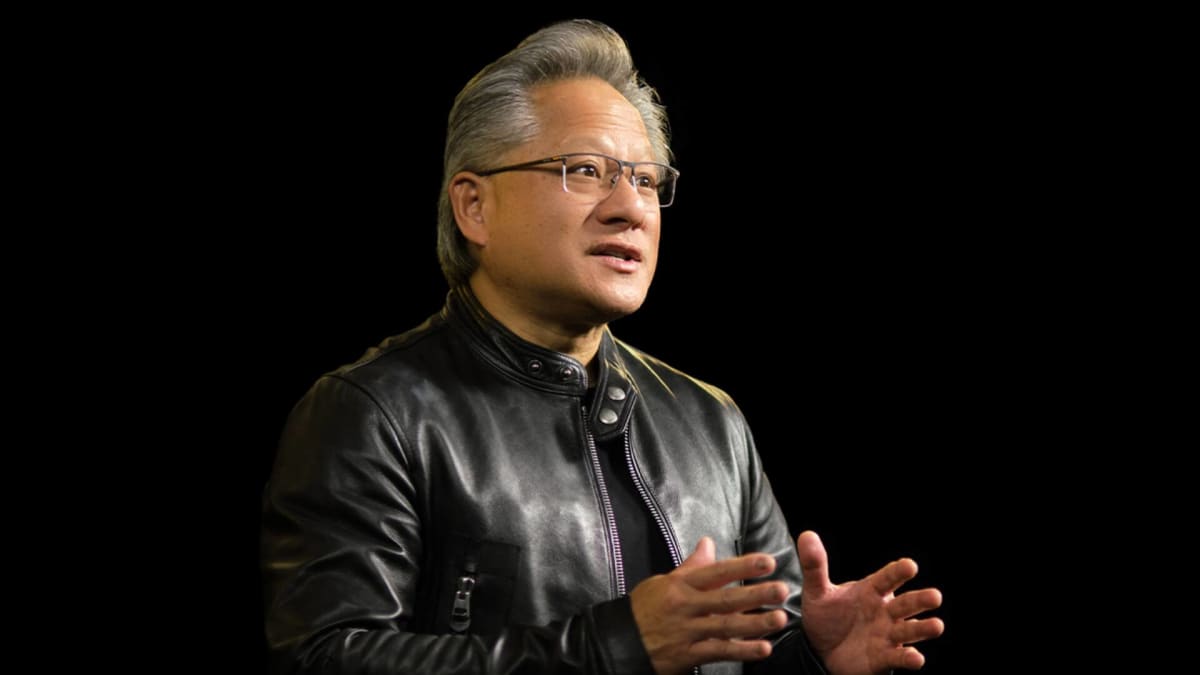
Unless you live on Mars, you have not been able to escape the artificial-intelligence revolution, which launched with ChatGPT on Nov. 30 and overturned assumptions in every economic sphere.
This chatbot, which provides human-like responses to even complex requests, has changed the way internet search is perceived. The chatbot showed that AI has reached a point where technology can perform certain tasks much better than humans can.
With this new technology paradigm, robots can now perform even the most complex human tasks. You just have to train them with massive data; hence the use of so-called large-language-model technology to underpin ChatGPT and other AI tools and systems.
Nvidia as a Case Study in AI
An AI arms race was immediately launched, the fiercest competition since the invention of the internet, the PC and the cloud. Even the cloud revolution was not as intense.
Much of Big Tech -- Microsoft, Google parent Alphabet, Facebook parent Meta Platforms, Tesla, Amazon and Apple -- are involved. Startups include OpenAI, which developed ChatGPT and is heavily backed by Microsoft, and others.
Analysts have issued multiple research reports to extol the potential of AI, which is expected to boost corporate productivity and efficiency while slashing costs.
Investors are making predictions on the potential winners and losers. Hardly a day goes by without a financier or analyst praising the progress of this or that AI-focused company.
Sorry to say, but right now this is all hot air. We are flying blind.
Nobody, not the VCs of Silicon Valley nor the stars of Wall Street, has really assessed or is able to assess the disruptive power of AI for companies and the economy.
Case in point: Nvidia.
The graphics-microprocessor giant had a nightmarish 2022. The stock came back to Earth after nearly two years of significant growth, as its graphics processing units were considered the true Formula 1 of computing and the holy grail of the PC gamers.
Nvidia was one of the stars of the pandemic economy. In addition to gaming, its processors were also in high demand from crypto players, another sector that took advantage of the federal government's economic-stimulus packages to shore up demand during the covid-19 restrictions.
Nvidia's share price lost half its value in 2022, and few predicted it would rebound quickly. The debate among investors was whether Nvidia's stock was still too expensive.
A final blow to the group came from Cathie Wood, the tech-trend-hunting guru. In January her flagship Ark Innovation ETF (ARKK) sold the last 37,000 Nvidia shares it held. The move could have been interpreted as Nvidia having reached its twilight.
No One Saw Nvidia Surge Coming
Five months later, the Santa Clara, Calif., chipmaker has never been in better shape.
Nvidia stock has more than doubled (up 175%) this year, which translates to more than $630 billion in additional market value. And that's not the end of the story.
Nvidia is now among the rare companies that have touched the trillion-dollar mark in market capitalization. And the more AI advances towards AGI -- artificial general intelligence, which is the point at which a machine can understand or learn anything that humans can -- the more Nvidia will grow.
The company has just unveiled a slew of new AI products, dealing a blow to its detractors.
This surge is due to Nvidia's pivotal role in AI. Nvidia's graphics cards are used to train and develop AI systems through machine learning and deep learning programs. AI companies need Nvidia's GPUs for high-performance computing within their data centers.
The blame game has begun about who saw and who didn't see Nvidia coming. But that's the wrong approach. No one did.
No one has been able to predict AI becoming so disruptive in just a few months. The proof is that investors have thrown themselves into Nvidia shares like people starving for food.
Since the company reported quarterly results on May 24, in which the group confirmed the breakthrough and the demand for its AI products, the stock has gained more than 31% in just four trading sessions.
Let Nvidia Co-Founder and Chief Executive Jensen Huang say it best, including a warning to every sector:
"Agile companies will take advantage of AI and boost their position. Companies less so will perish," Huang said in a commencement speech on May 28 at the National Taiwan University in Taipei. "While some worry that AI may take their jobs, someone who is expert with AI will."
Get investment guidance from trusted portfolio managers without the management fees. Sign up for Action Alerts PLUS now.







